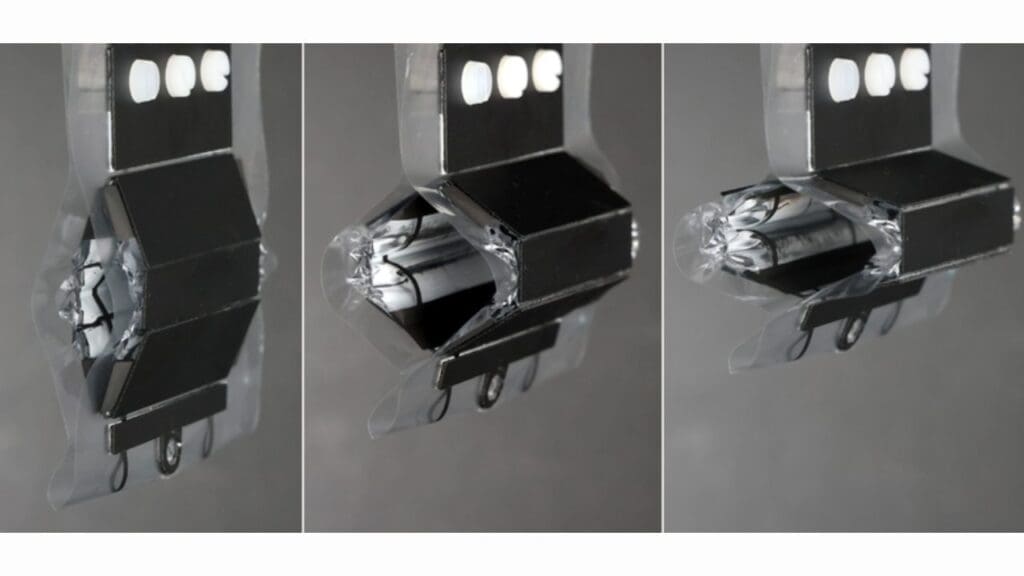Researchers at the Max-Planck Institute for Intelligent Systems (MPI-IS) have developed hexagonal robotic modules that can be assembled in a LEGO-like fashion. These modules, called HEXEL, can be reconfigured in various ways to create robots capable of operating at high speeds.
The project, led by Christoph Keplinger from MPI-IS’s Robotic Materials Department, highlights the innovative design of the HEXEL modules. Their exoskeleton is made from lightweight, rigid glass-fiber plates, while the internal joints move using hydraulically powered, self-healing electrostatic (HASEL) artificial muscles. When high voltage is applied, these artificial muscles activate, altering the shape of the hexagon.
Improved mobility with HEXEL modules

Studies have shown that HEXEL modules can form new robot geometries by combining multiple modules, allowing them to be reconfigured to meet different needs.
In their demonstration videos, the modules showcase impressive capabilities such as navigating through tight spaces, jumping from heights, and moving at high speeds. The researchers emphasize that these reconfigurable robots offer great versatility and can be effective in a wide range of applications.
You may also like this content
- Boston Dynamics’ Humanoid Robot Atlas’ New Version Takes the Stage!
- Meta Develops Humanoid Robot to Rival Tesla!
- Boston Dynamics’ Atlas Robot Showcases Stunning Backflip Ability

